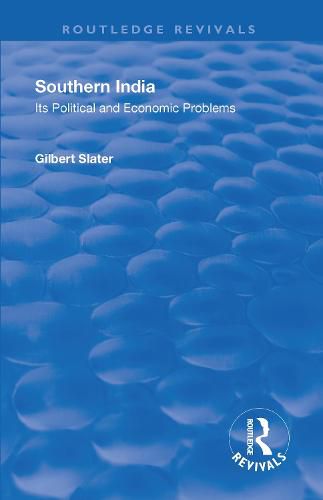Readings Newsletter
Become a Readings Member to make your shopping experience even easier.
Sign in or sign up for free!
You’re not far away from qualifying for FREE standard shipping within Australia
You’ve qualified for FREE standard shipping within Australia
The cart is loading…






This book deals firstly with the economic and social conditions of life among the villagers, the artisans, and other workers in cities and towns of South India, and also with the new issues raised in India during the most momentous years of its history since the mutiny - the commercial and financial disturbances following the war, the sudden appearance of aggressive Trade Unionism, the famines of 1918 and 1920, the rise of the Home Rule agitation and the Non-Co-operation movement, and the coming into operation of the new Constitution of 1919. The author, who went to India in 1915 as Professor of Indian Economics in the University of Madras, was quickly brought into contact with heads of departments of the Provincial Government, was nominated by Lord Willingdon to the Madras Legislative Council, served in the Indian Board of Agriculture, and stayed on for a year in charge of the Madras Publicity Office. In these and in other ways he has had exceptional opportunities of getting insight into Indian problems from an unusual point of view.
$9.00 standard shipping within Australia
FREE standard shipping within Australia for orders over $100.00
Express & International shipping calculated at checkout
This book deals firstly with the economic and social conditions of life among the villagers, the artisans, and other workers in cities and towns of South India, and also with the new issues raised in India during the most momentous years of its history since the mutiny - the commercial and financial disturbances following the war, the sudden appearance of aggressive Trade Unionism, the famines of 1918 and 1920, the rise of the Home Rule agitation and the Non-Co-operation movement, and the coming into operation of the new Constitution of 1919. The author, who went to India in 1915 as Professor of Indian Economics in the University of Madras, was quickly brought into contact with heads of departments of the Provincial Government, was nominated by Lord Willingdon to the Madras Legislative Council, served in the Indian Board of Agriculture, and stayed on for a year in charge of the Madras Publicity Office. In these and in other ways he has had exceptional opportunities of getting insight into Indian problems from an unusual point of view.